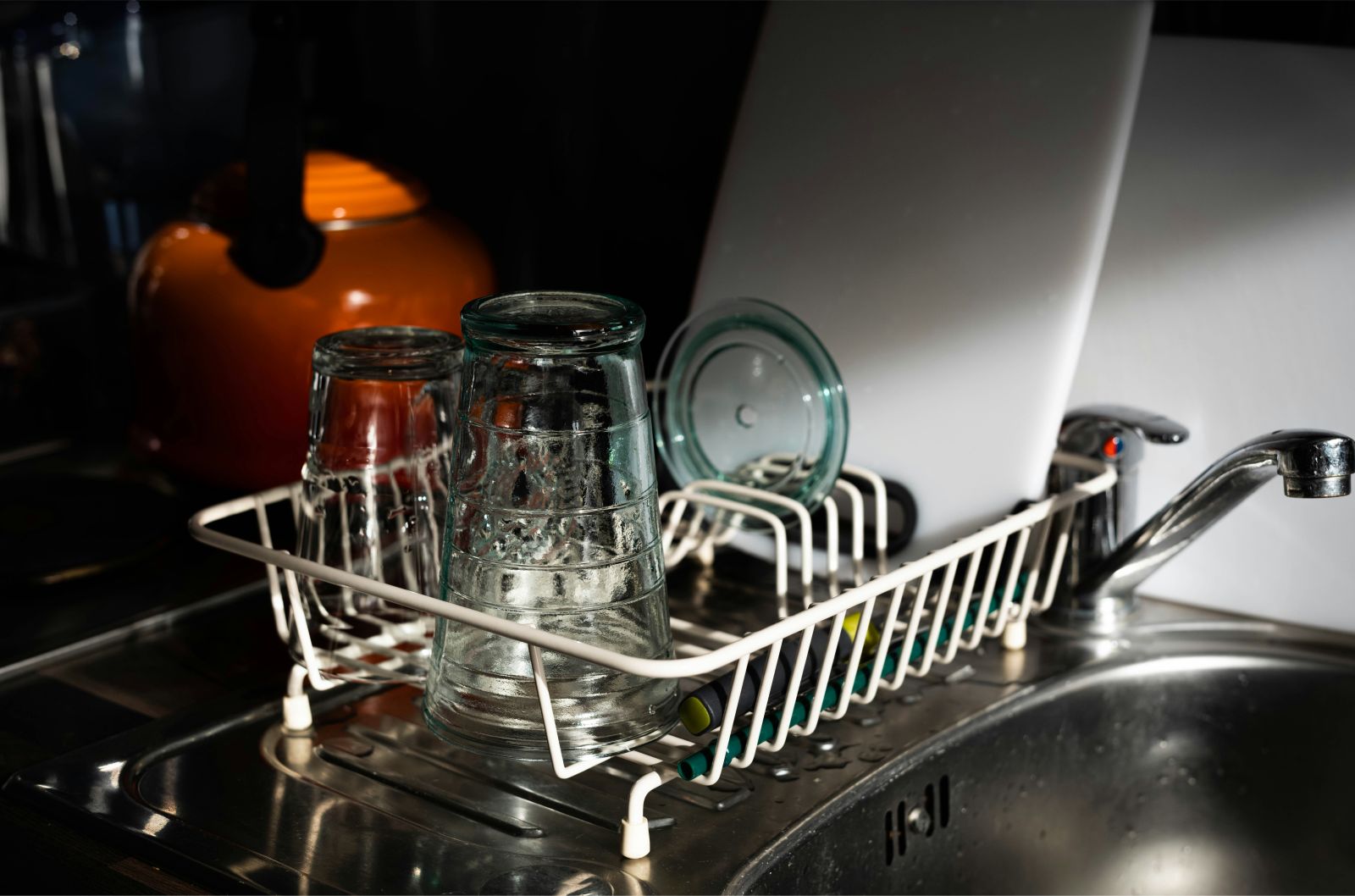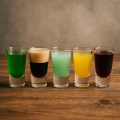Glass corrosion: what is it and how to prevent it?

A nightmare for hospitality operators: glass corrosion. Glasses with spots on their surface. You do everything you can to remove it, but in vain. What exactly is glass corrosion? Can you remove it? And how can you prevent it? You can read all about it in this blog!
What is glass corrosion?
To explain what glass corrosion is, it is important to know what corrosion itself means in the first place. Corrosion is the process by which a substance comes into contact with another substance, which can cause irreparable damage or even complete destruction of the original substance.
Glass corrosion works the same way. It is a process where the glass is slowly corroded by chemical reactions. This usually happens when glasses are often left damp, for example in the dishwasher or in a closed cabinet. Cleaning agents with strong substances can also affect the glass.
These conditions change the structure of the glass. This is not dirt lying on the glass, but a change in the glass itself. As a result, glasses eventually lose their original quality. What exactly happens to the appearance and whether you can still restore it, you can read further on in this blog.
How does glass corrosion occur?
Glass corrosion does not just happen. It has to do with the conditions in which glass is used or stored. Moisture, heat and cleaning agents, in particular, play a major role.
Causes of glass corrosion:
- Glasses stay wet for too long, e.g. after the dishwasher or in a closed cabinet.
- Aggressive cleaning agents are used.
- The dishwasher runs at high temperature, which affects the glass faster.
- The glass is low quality or "soft", and thus more susceptible to damage.
- In the hospitality industry, glasses are often washed, which increases the risk.
So glass corrosion occurs mainly in frequently used glass that is subjected to a lot of moisture, heat and cleaning.
What is the difference between glass corrosion and scale?
You've probably experienced it before: you take a glass out of the cupboard or dishwasher, and there's a dull haze on it. You try to brush it away, but it remains. So is it limescale or glass corrosion? Although they look similar, they are two very different things. It is important to know the difference, because the solution is not the same.
Lime scale:
- Is caused by lime in hard water.
- Looks like white spots or a light haze.
- Sits on the glass and sometimes feels a bit rough.
- Is easily removed with cleaning vinegar or citric acid.
Glass corrosion:
- Is damage to the glass itself, not a coating on it.
- Occurs due to moisture, heat and chemicals.
- Looks like dull or rainbow-like glass.
- Cannot be polished away or cleaned.
If you know the difference, you avoid polishing unnecessarily. Lime scale disappears, glass corrosion remains.
Is glass corrosion repairable?
The short answer, unfortunately, is no. If you discover that your glasses have become dull due to glass corrosion, you naturally hope that you can get them looking nice again. Unfortunately, this is usually not the case.
Glass corrosion means that the surface of the glass is permanently damaged. You cannot remove it like you would with dirt or scale. Yet people often try all kinds of remedies to no avail. Polishing the glass is sometimes an option, but that is expensive and time-consuming.
Once it is glass corrosion, there is little you can do about it. So prevention really is better than cure.
How do you prevent glass corrosion?
Glass corrosion is almost impossible to repair. Fortunately, there is a lot you can do to prevent your glasses from becoming dull. With a few simple habits, your glasses will stay beautiful much longer.
Tip 1
Wash at a low temperature, preferably 40 degrees, when putting glasses in the dishwasher.
Tip 2
Remove glasses from the dishwasher quickly as soon as the programme finishes, so they don't stay damp for long.
Tip 3
Dry glasses with a cloth, especially if they are wet or have just come out of the dishwasher.
Tip 4
Store glasses upright, i.e. with the opening facing up. If glasses are upside down, moisture can build up.
Tip 5
Use mild detergents, not aggressive tablets or powders.
Tip 6
Invest in quality glassware, especially if the glasses are for the catering industry, they are used a lot.
Need quality glasses?
Dull glasses are a waste - especially if you know it's preventable. Use the tips from this blog and keep your glassware in tip-top shape. Curious about better-quality glasses? Then check out our range of glassware and get your glasses printed!
Index
Popular blogs











